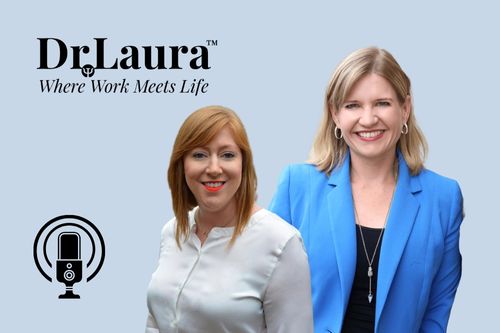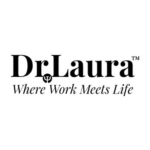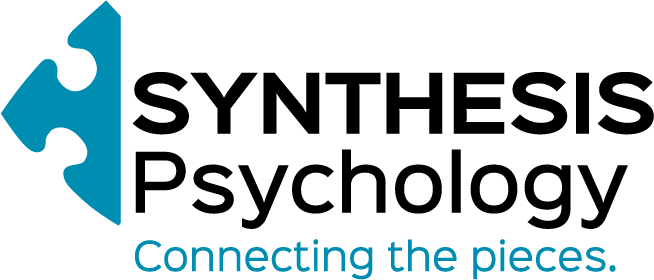A Conversation with Laura Hambley and Meghan Reid

Interviewing a psychologist I truly admire, Meghan Reid, was a conversation that I hope helps many of you who feel stuck. Meghan co-founded Canada Career Counselling with me in 2016. She lives in Toronto, where she has grown a talented team of career psychologists and psychotherapists, making impacts on countless people’s lives as they navigate finding career fulfillment at all ages and stages of life.
More people than ever seem to be struggling with dysfunctional bosses and organizations, finding themselves amidst the “Great Resignation”, which I like to refer to as the “Great Re-Evaluation”. Throughout their lives people grapple with questions like: “who am I?” and “what do I really want to do next?” Yet many find themselves tied to financial obligations or “golden carrots”, leading them to stay in jobs that are unfulfilling at best, and recipes for burnout at worst.
In this blog Meghan Reid and I explore why people stay in unfulfilling jobs and what you might consider if you’re thinking of leaving.
To listen to the full conversation, check out these podcast episodes from Where Work Meets Life ™:
— S03.E41: Too Bad to Stay, Too Good to Leave: Making Purposeful Career Pivots
— S03.E42: Career Fulfillment: Making or Breaking our Work-Life Wellness
What is the biggest misconception about changing careers?
Meghan describes two of the most common misconceptions. The first is that people feel they have failed or wasted time if they’re making a career change. We think of this very differently: everything you’ve done in your life, including work experience and education, can be reflected on and used strategically to make a new or different decision for yourself. All of your experiences are useful information for making better decisions and being happier.
The second common misconception is that people automatically assume they have to go back to school and get another degree or diploma to change careers. This isn’t necessarily true: a lot of clients have the transferable skills and network necessary to support the transition they want to make without reschooling.
ANOTHER MISCONCEPTION IS THAT “EVERYONE ELSE HAS IT FIGURED OUT EXCEPT ME”. IN FACT, MANY DO NOT HAVE THIS FIGURED OUT.

What are the top reasons people get stuck in the wrong career or role and don’t make a change, despite suffering?
One common reason, according to Meghan Reid, is feeling trapped or stuck. Sometimes because of “golden handcuffs”, such as future compensation or pension. People feel they can’t make the change without losing a lot of money.
Also, many people don’t know what career to change to or how to make an informed decision about this. They feel they might be unhappy again. They often can get stuck in their own heads, and may be receiving messages from family and friends that confuse them and lead to further feelings of being trapped. Indeed, messaging and judgment from others, and worry about what friends and family will think, is another common challenge.
Another misconception is that “everyone else has it figured out except me”. In fact, many do not have this figured out. They aren’t happy either, but haven’t taken the steps to figure out what would make them happy.
How have you noticed the Great Resignation impacting Canada Career Counselling’s clients?
Meghan Reid explains how she has definitely seen the Great Resignation at play. People are making moves and transitions in great numbers, whether changing jobs or starting their own businesses. Further, the impact Covid had on people experiencing working from home for the first time changed the game and expectations people had – both for what they wanted for themselves and for what they expected from employers.
THE MOST COMMON FEELINGS MEGHAN SEES IN CLIENTS WHO NEED A CAREER CHANGE ARE: STUCK, UNHAPPY, STRESSED, AND/OR UNFULFILLED.

What are the signs or symptoms people go through that indicate it’s definitely time to make a change?
The most common feelings Meghan sees in clients who need a career change are: stuck, unhappy, stressed, and/or unfulfilled. Meghan explains how ”when we start career counselling, we do a thorough exploration of a person. What they enjoy doing, their skills/strengths (what they’re good at), their values and personality (what motivates them and what they would find satisfying). We use the information as criteria to use in comparing jobs/careers. We often see huge misalignment between who they are and the job they’re in.”
It’s time to consider a career transition when there’s misalignment between you and the job or career you’re in. Sometimes it’s about changing jobs (i.e. your specific job isn’t a good fit but your career is) and other times it’s about changing careers.
For our listeners who are struggling but haven’t been able to make a change, what’s the first step you recommend?
To reach out for help from a career counsellor, psychologist, or mentor. Talk to someone, don’t keep it to yourself. Meghan recommends writing out a list of the reasons why you haven’t made a change. What are the challenges or roadblocks you are facing (e.g. I don’t know what type of career I would do)? Meghan explains how “when you write these things down, you realize it’s not as big of a roadblock as you thought. [You can] work through each challenge one by one.” (i.e., How could I overcome this hurdle or roadblock? Career counselling? Job shadowing? Talking to my network?)
To learn more about career counselling visit Calgary Career Counselling.
Other resources include:
- CERIC: the Counselling and Education Research Institute of Canada. They compile articles and their e-newsletter is an easily digestible set of articles with current topics in the realm of career development.
- O*Net Online: a good American website for career exploration

Check out the latest podcast episodes of Where Work Meets Life™!

